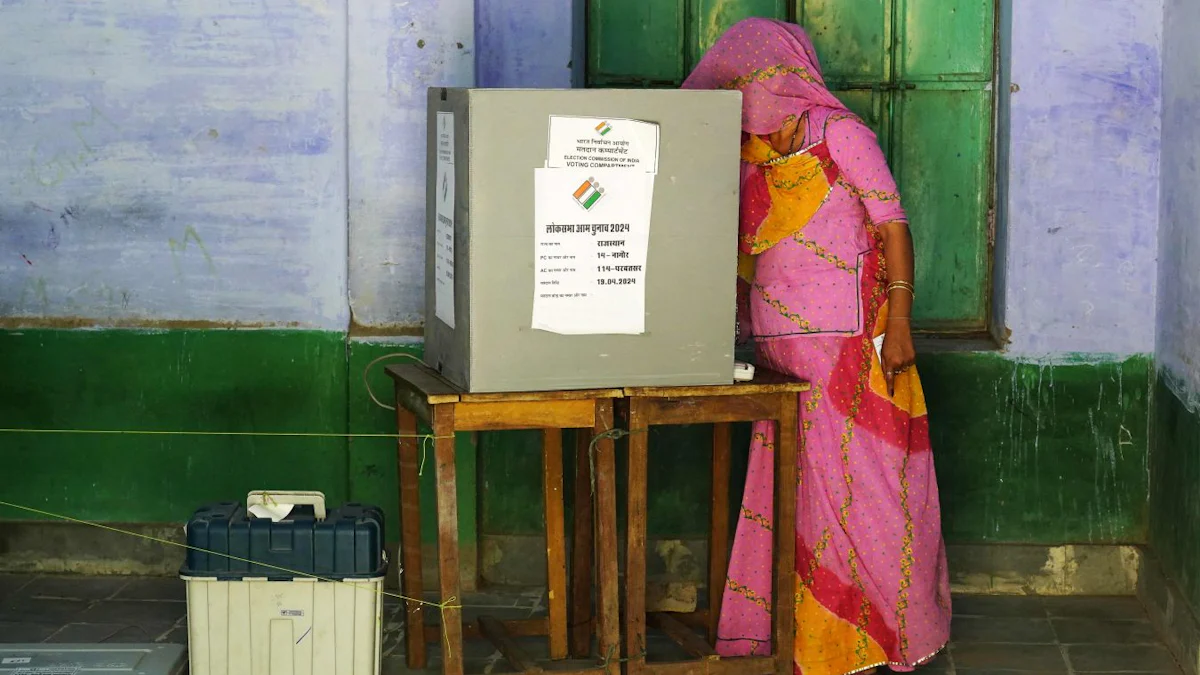Elections in India will enter the second phase on Friday. A further 88 seats in parliament will be up for election in 13 states. Among others, Rahul Gandhi, the most prominent figure of the venerable but weakened Congress Party, is voting in the constituency. Another popular opposition politician, Arvind Kejriwal, is currently jailed in Delhi. On Tuesday, his pre-trial detention was extended until May 7.
The world's biggest democratic elections will continue until June, with 986.8 million people able to vote for more than 2,600 parties. Prime Minister Narendra Modi, who is leading in opinion polls, wants to win a third term and a majority for the ruling alliance. Apparently, any means necessary.
An opposition politician is said to have withheld insulin while in detention
Jailed 55-year-old Arvind Kejriwal was elected chief minister of the Delhi Capital Territory thanks to his anti-corruption campaign. His Aam Aadmi Party (AAP) is part of the INDIA alliance, which was formed by 27 opposition parties to fight Modi's Bharatiya Janata Party (BJP), which has been in power since 2014. Many observers believe Kejriwal's arrest is related to corruption charges weeks before elections begin. politically motivated. However, Kejriwal cleverly used his position to create an atmosphere in prison.
Shortly after his arrest, protests broke out in Delhi and neighboring Punjab state against the BJP government. Kejriwal remains a topic of conversation even from prison, for example because his supporters openly express concerns about his health, because Kejriwal suffers from diabetes. His wife complained that her husband was not being given the required dose of insulin. “BJP government officials are deliberately not addressing it,” AAP chief Saurabh Bharadwaj said in a statement on Monday. The BJP, on the other hand, accused the AAP of wanting to generate “sympathy” for its main candidate in this way.
India's Financial Crimes Branch, which arrested Kejriwal, alleged that he deliberately ate mangoes and sweets in excess to increase his sugar levels, while prison authorities said Kejriwal was not given insulin because he was not given one by a doctor at the time. video consultation. Representatives of the AAP, BJP and the authorities accused each other of their actions of being politically motivated. On Wednesday, Kejriwal received the medicine he needed.
Modi called Muslims “infiltrators” in his speech
“The second phase of the election campaign ended with bitter results,” the newspaper wrote Hindu on Thursday, as India's election campaign intensified elsewhere. Last week, Narendra Modi gave a speech in Rajasthan where he went beyond simply highlighting his success in economic growth. He called Muslims “infiltrators” and claimed that if the Congress Party wins the elections, the people's wealth “will be distributed to those who have more children.” So Muslims. Modi asked the crowd: “Do you think your hard-earned money should be given to infiltrators? Will you accept it?”
The opposition accused Modi of “blatantly targeting” India's 200 million Muslims with his comments. The Congress party filed a complaint with the Election Commission, saying that Modi's speech was a “divisive, offensive and malicious comment against a particular religious community” and was a “blatant and direct violation of election laws.” The Congress Party leader accused Modi of “hate speech”.
In the southern state of Karnataka, which goes to the polls on Friday, BJP supporters took to the streets this week to protest the killing of a Hindu woman. The murders were the result of “love jihad”, a conspiracy term used by radical Hindus to accuse Muslim men of luring Hindu women to convert to Islam by marrying them.
In fact, Modi's comments deviated from his practice of not speaking directly about Muslims, as Hilal Ahmed told Reuters on Thursday. Ahmed is an expert on political Islam, Indian democracy, and symbolic politics in South Asia at the Center for the Study of Developing Societies in Delhi. “At the start of the election campaign, the focus was on development, welfare and addressing marginalized groups, while Hindutva came last,” Ahmed said.
He attributed the tightening of campaign speeches to low voter turnout in areas where the BJP performed well in previous elections. “After the first phase, they realized they had to appeal to their traditional voters.” Pollsters have pointed out the danger that the BJP could overestimate itself and underestimate voter fatigue in the election. The atmosphere could become more tense in the coming weeks.

“Subtly charming web junkie. Unapologetic bacon lover. Introvert. Typical foodaholic. Twitter specialist. Professional travel fanatic.”







